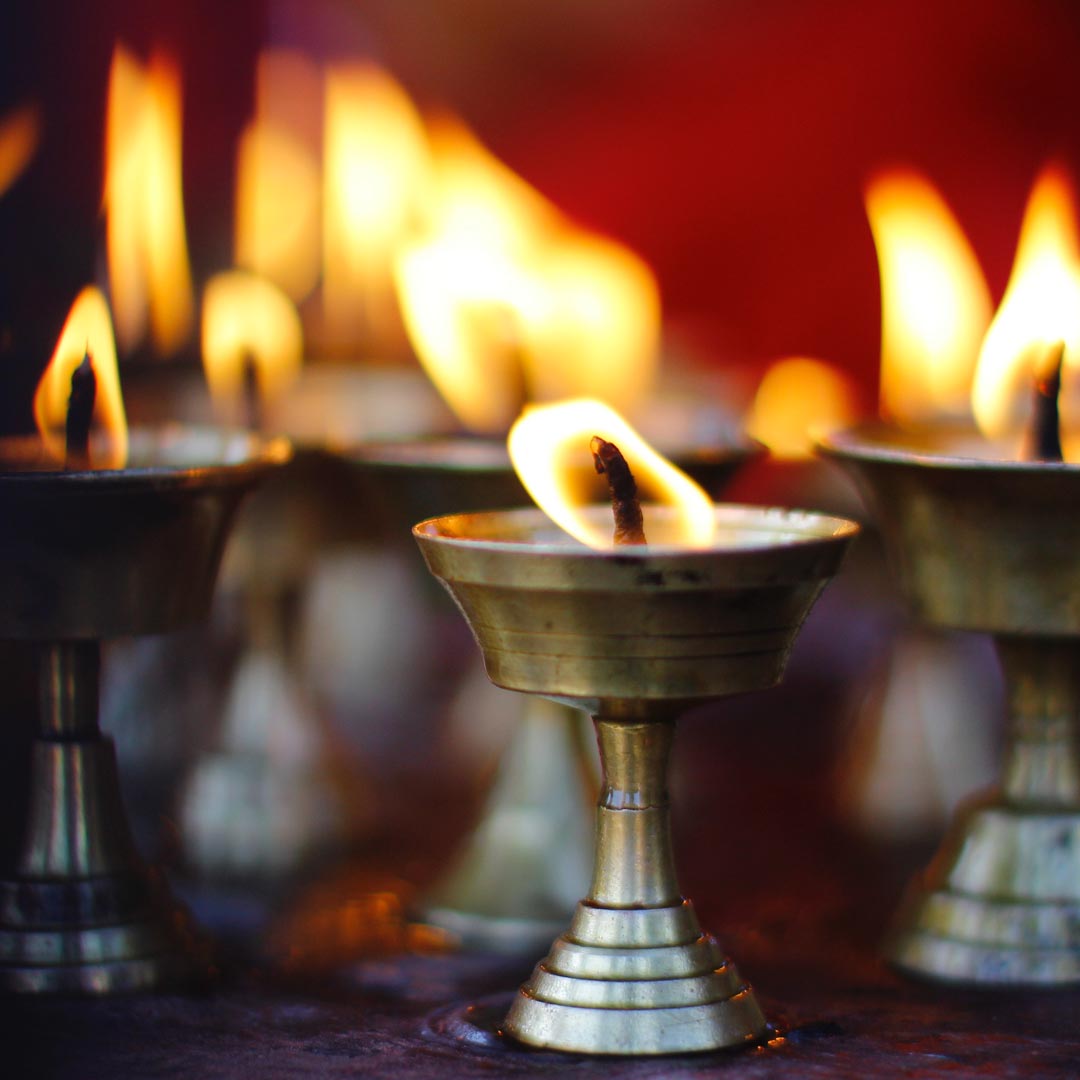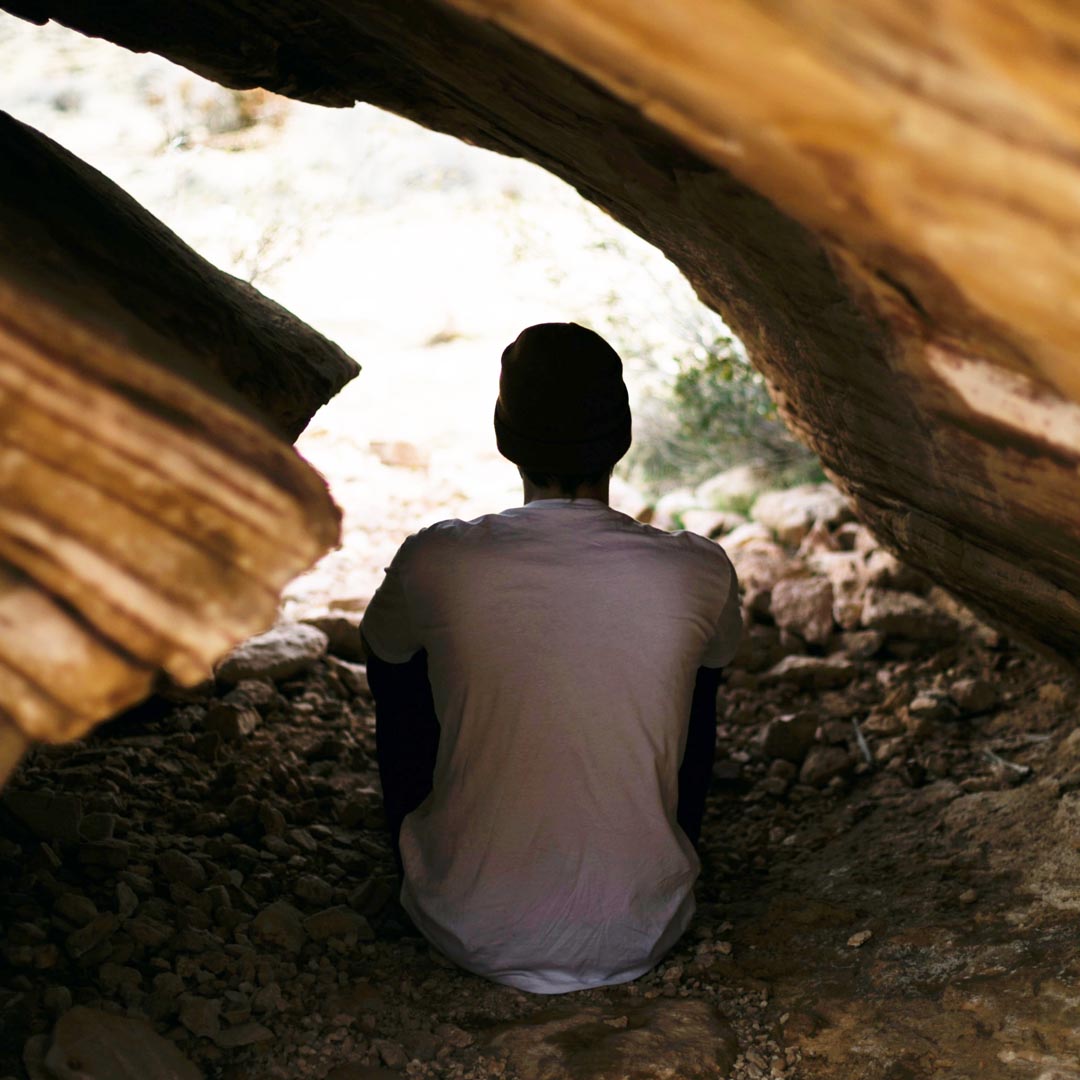I arrested a murderer a very short time after becoming a police officer. In the years since then, I have arrested and contacted people who are guilty of just about every kind of crime you can imagine. At the start of my career I was surprised how the people committing these crimes did not “look” like criminals. We imagine criminals to be wearing masks with facial scars and angry eyebrows. We imagine people who make their criminal agenda blatantly obvious and, therefore, people who are easy to spot. In fact, it is often quite the opposite.
Generally speaking, people breaking the law do not want to be caught. However, it is common for people to say when they have been arrested, “It was the best thing that could have happened for me”. This usually implies a positive lifestyle change, improved relationships, sobriety, and many other positive results of being forced to face a criminal action brought to light.
If you remove criminal law from the picture and replace it with spiritual law, the same principles apply. Generally speaking, no one wants to be caught. However, sometimes it is the best thing that could ever happen to us.
There is another group of people who commit crimes and resolve to turn themselves in. It is usually unexpected for someone to walk up to a police officer and say, “I robbed that gas station the other day. I need you to arrest me”. People will come into the police station and turn themselves in on warrants or other crimes. The difference between being inconveniently arrested and self-reporting is that the person who self-reports is calm, prepared for jail without any unnecessary personal items and has already informed people close to them where they will be. Unexpected arrests, on the other hand, can result in physical fights, searches of property that can often reveal other issues, temporary or permanent loss of personal property, relationship struggles etc. The advantage of self-reporting also applies to spiritual matters.
“Generally speaking, no one wants to be caught. However, sometimes it is the best thing that could ever happen to us.”
The military has a program for pilots to self-report alcoholism because it is a life and death safety issue for everyone around them. Rather than being treated with punishment, they are entered into a process to help them recover and ultimately restore them to their regular job and duties. It is a safer environment for everyone, not just the pilots, if the pilots are able to be healthy. The program is incredibly successful, with job restoration and maintenance percentages in the high nineties.
When the pilots are allowed to self-report without fear of losing everything they have worked for, and knowing there is support for them to achieve sobriety and return to work, they feel safe admitting the fault they have.
That does not take away shame, fear, and embarrassment. Self-reporting of any kind in a safe environment is still very difficult. So, it stands to reason why people who cannot identify a safe environment around them do not self-report, ask for help, or show the issues they are struggling with. There is fear of losing family, jobs, friends, respect…everything. If there is just one person in the life of someone who is struggling that will listen with compassion and not judgement, it can make all the difference in the world.
Mental health is something we have a difficult time understanding. It’s easy to step on a scale, watch blood pressure, blood sugar, etc. and make a plan based on those measurements.
Where are the scales and measuring devices for mental health? We were created by an all-knowing and compassionate God. He gave us all the information we need to be healthy. There is a distinction between our body and our soul. I believe it is the soul that makes mental health so difficult to measure. We have spiritual needs we cannot even understand as well as the instincts and body of an earthly creature.
I am by no means a mental health professional. These conclusions are simply based on personal experience and what I can only describe as spiritual guidance.
Mental health has been studied for centuries and has made some standard practices to address common mental health issues. A great deal of it has simply to do with communication: Talk to a therapist. Go to group therapy and talk with other struggling people. Write down your struggles in a journal or a letter and mail it to someone who you want to hear you.
This is nothing new. God already addressed it with very simple advice:
Confess your faults one to another, and pray one for another, that ye may be healed. James 5:16
Confess to each other. Pray for each other. Be healed.
A personal confession of mine follows. It is how these thoughts were placed on my heart…
God has given me wonderful blessings in the past couple of years. He brought a great man into my life for companionship along with a sweet and lovable stepson. He then gave us a beautiful and wild baby boy to add to the mix. I am so grateful for these three guys in my life and the joy they bring. If only I could stop there and say, “we lived happily ever-after”…
Changing at 35 years old from a single woman with a career and home, who made the big and small decisions on my own, to having a husband and two children within a year was a big adjustment. Add in some pregnancy complications, a difficult infant, a stressful job, and it was a terrific recipe for significant postpartum depression and anxiety.
“Confess to each other. Pray for each other. Be healed.”
Never in my thinking did I imagine I would seek professional help for the struggles of everyday life… That is, until my husband and mother separately confided in me their concern and encouraged me to talk to a doctor. I obliged and began receiving care for my mental struggles, including seeing a counselor and two therapists.
Fast forward one and a half years…I recently had a panic attack while talking with my boss about issues resulting from previous work experiences. His concern (for which I am grateful) ended up with a peer support colleague suggesting I go to group therapy for First Responders and Military.
Just the idea of going to a group to talk about my feelings was terrifying, not to mention the intake process! Once in the group, I was asked to introduce myself and if I could share what brought me there. I told them my name and said, “No.” After several sessions of listening to others tell about the struggles they had, it became a safer environment to be vulnerable in. I agreed to talk about why I was there; I was terrified, shaking and crying. I was embarrassed and scared of what the people there would think of me. I felt shame for not having the ability to deal with the struggles facing me, for being weak, and I hate crying in front of people.
I was the only police officer in the group made up of all military and some medical professionals. Feeling disconnected and possibly hated for simply being an officer, it was very difficult to speak. After sharing that fear with the group, they were able to provide support and encouragement, letting me know I could speak to them without judgement.
As the sessions progressed, I told more and more of my story and felt more of my burden lifting as I shared it with others.
Group therapy is interesting. It is in the hands of the group. There is a moderator to lead things, but the needs of the group and individuals determine how the session goes. The point is not to give advice when people share with the group or to fix anything, because you can’t. The point is to listen, let them know you heard them, let them know if you can relate, and to acknowledge their struggle. That’s it. It is very simple. The simple act of sharing struggles and confessing brings healing.
The reality of how sharing results in healing struck me on a particular day. A fellow member of the group had suffered postpartum depression and anxiety, and began drinking alcohol to cope. She would say, “…then something really bad happened and that is how I ended up here.” One day I asked if she was willing to share what happened. She made a big sigh and said, “Yes.” She said how she was afraid of what I would think of her because of my job in law enforcement. She was involved in a fender-bender while driving after drinking and was arrested. It took a long time to get those words out. She was shaking and crying while talking and was embarrassed because of what she imagined I would think. I asked if she wanted to know what I thought and she very quickly said, “Yes.” I told her I saw her arrest as a success because she was here and sober. Her marriage was better, her family was better and she was working through her struggles in a healthy way. It would be great if every arrest ended that way!
“As the sessions progressed, I told more and more of my story and felt more of my burden lifting as I shared it with others.”
Immediately and visibly, her burden lifted. She was able to calm herself down. The moderator asked if she felt better and she said, “Now I do” and thanked me for telling her my thoughts. She no longer had to be careful about the words she chose, trying to hide what had happened. From that day on, she was comfortable and smiling.
Confession results in healing. God designed it that way. It allows people to connect in a more profound way:
Confess your faults one to another, and pray one for another, that ye may be healed…
When someone confesses to us, we are told to pray for each other. That is the action we should take. That is the main way we help. The rest of James 5:16 reads, “The effectual fervent prayer of a righteous man availeth much.”
I have always thought of this portion of the verse standing alone, and it does that well. However, it directly follows the admonition to confess our faults to each other and pray for each other so we can be healed. There are big issues that we cannot begin to address and may have no answer for. Allowing someone to express their struggle out loud so they and others can hear it is, in itself, powerful and brings healing. Add to that the effectual fervent prayers of God’s people and it will accomplish a lot.
The group member who was anxious and did not want to share had no idea what I would think. After not sharing, her imagination took over and created a burden for her. When she had the courage to share it, it vanished. The same happened when I was hiding my profession and, therefore, could not share my story because I was afraid of the mounting hatred toward law enforcement in the past years. It was a fear without any validity. It could not be resolved until I shared it, and then it instantly vanished.
(That led me to realize that by no intentional act of my own, I had part in hindering someone’s healing. I cannot make anyone confess based on my actions, but I want others to know it is safe to share when I am there and am trying to figure out how to show that.)
What makes an environment where guilty sinners can self-report the struggles they face? As always, the scriptures provide insight:
“But the end of all things is at hand: be ye therefore sober, and watch unto prayer. And above all things have fervent charity among yourselves.”
1 Peter 4:7-8
So, we watch out for each other. We pray for each other. “And above all things have fervent charity among yourselves.” As we know, charity is scripturally defined as the pure love of Christ. Christ could see great joy ahead of Him after the trial of bearing our sins on the cross. As a result, He suffered for us to pay our consequences and take our shame on Himself. He had no shame of his own doing. He bore the shame that we create:
“Looking unto Jesus the author and finisher of our faith; who for the joy that was set before him endured the cross, despising the shame, and is set down at the right hand of the throne of God.” Hebrews 12:2
What greater charity could ever be expressed? To what level of charity should we aspire to show others?
We often hear, “no sin is too great.” The only sin that cannot be forgiven is to deny the Holy Ghost once you have received it. The context of those words is usually to convey that no matter what you have done, God has paid the price for you and you can be forgiven.
Looking at it from a different angle: Is there any sin you could not bear to hear confessed out loud by a brother or sister? In other words, is there any sin too great for you to forgive?
Another way to think of it: If you needed to confess a sin but a brother or sister could not bear to hear your sin confessed, would that result in healing for you? Would you even be able to confess?
We each have sins to confess and weaknesses that take hold of us. What might it be like if everyone could share the struggles they face and have faced in the past? What would it be like if we all fervently prayed for one another after hearing those confessions with fervent charity? What would it be like if we were all able to obtain healing in this way? If we saw each other as we really are and loved each other in spite of it all?
We have a habit of demonizing particular sins. Which is (a little) humorous because all sins are of the devil, not just some of them. We likely each have slightly different sins we put in that category. Each of the sins that disgust us and that we find no excuse for, are common. It is a common occurrence for mankind to commit those specific sins. It happens regularly. It happens by people you would never expect, people who don’t “look” like the devil’s servants. It happens in our communities, our families, and in our church:
“There hath no temptation taken you but such as is common to man:”
1 Col 10:13
In no way do I mean to minimize sin… Quite the contrary. Just as with the military pilots, if one is struggling with alcoholism, everyone’s safety is at risk. We are all in danger when sin is not addressed in some way. How can we create an environment where the sins and struggles of our people can be addressed, and where self-reporting can be positive? It is terrifying enough as it is without the judgement and disdain of others. We are told:
“..work out your own salvation with fear and trembling.” Phil 2:12
After watching the stress and discomfort of confession, this scripture has taken on new meaning.
Some sins are harder to bear than others, no question. If we view someone as lower, filthy or unable to be of value in the body of Christ because it is difficult for us to bear the temptations they are struggling with, we deprive ourselves from obtaining a great blessing:
“And the King shall answer and say unto them, Verily I say unto you, Inasmuch as ye have done it unto one of the least of these my brethren, ye have done it unto me.” Mat 25:40
Charity is the key. The pure love of Christ is the answer. A little further in 1 Peter 4:
“But the end of all things is at hand: be ye therefore sober, and watch unto prayer. And above all things have fervent charity among yourselves: for charity shall cover the multitude of sins. Use hospitality one to another without grudging. As every man hath received the gift, even so minister the same one to another, as good stewards of the manifold grace of God.”
1 Peter 4:7-10
So much is said in a few words! Charity is above all things. The reason is that it covers the multitude of sins; “The multitude,” not a multitude. It covers all of the sins. It does not erase them, but covers the sins from view. The best application of this is the charity we have toward others covers their sins from our eyes. We love them and value their soul’s salvation more than we focus on the sin that was committed. We should use hospitality toward one another. Be kind and don’t hold grudges for the sins we should be covering with charity.
Charity is the key. The pure love of Christ is the answer.
Lastly, we have all been given the marvelous gift of God’s grace. By that grace we are saved after we complete our struggles on earth. It is a gift from God that we possess. We are to be good stewards of that gift by giving it to others. Grace will only grow when shared, and thusly to have great healing power.
Confess. Pray. Be healed.
There is a passage in Isaiah that seems to bring all of this together:
“Is not this the fast that I have chosen? to loose the bands of wickedness, to undo the heavy burdens, and to let the oppressed go free, and that ye break every yoke?
Is it not to deal thy bread to the hungry, and that thou bring the poor that are cast out to thy house? when thou seest the naked, that thou cover him; and that thou hide not thyself from thine own flesh?
Then shall thy light break forth as the morning, and thine health shall spring forth speedily: and thy righteousness shall go before thee; the glory of the LORD shall be thy rereward.
Then shalt thou call, and the LORD shall answer; thou shalt cry, and he shall say, Here I am. If thou take away from the midst of thee the yoke, the putting forth of the finger, and speaking vanity;
And if thou draw out thy soul to the hungry, and satisfy the afflicted soul; then shall thy light rise in obscurity, and thy darkness be as the noonday:
And the LORD shall guide thee continually, and satisfy thy soul in drought, and make fat thy bones: and thou shalt be like a watered garden, and like a spring of water, whose waters fail not.
And they that shall be of thee shall build the old waste places: thou shalt raise up the foundations of many generations; and thou shalt be called, The repairer of the breach, The restorer of paths to dwell in.” Isaiah 58:6-12




